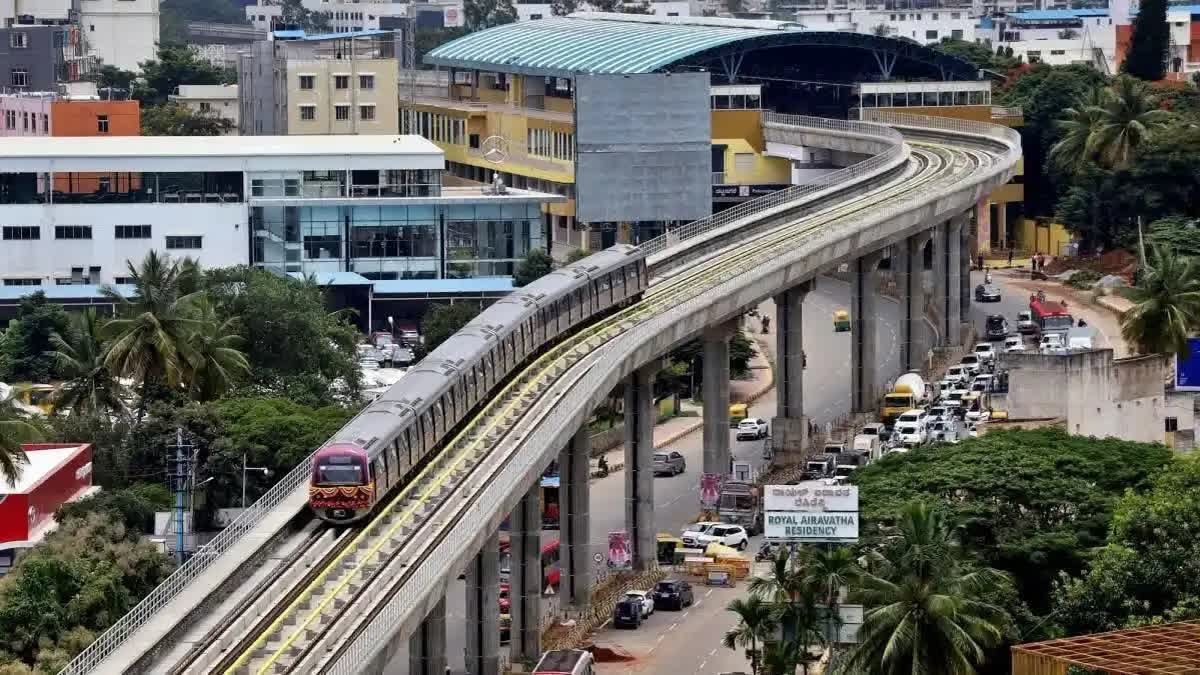Bengaluru: The recent fare hike implemented by the Bangalore Metro Rail Corporation Limited (BMRCL) has led to a significant drop in metro ridership, sparking protests and political debate. According to BMRCL sources, the number of daily passengers has decreased from 8.5 lakh before the fare revision to approximately 6.3 lakh, a decline of an average of one lakh commuters.
On February 8, BMRCL announced a fare hike of up to 100 per cent in some sections, along with an additional 5 per cent charge during peak hours. Following public outcry and intervention by Karnataka Chief Minister Siddaramaiah, the increase was capped at 71 per cent. However, the adjustment has not prevented a sharp decline in ridership.
A senior BMRCL official admitted that the anticipated revenue boost from the hike has not materialised. "There was a decline in metro ridership by about 2.3 lakh. The expected revenue from the hike has not been achieved. Our revenue is still the same or even less than before the hike was implemented on February 9," the official said.
Speaking to ETV Bharat, BMRCL official Yashvanth Chavan stated that there has been no significant decline in Metro ridership. He added that discussions regarding metro fares are ongoing, and a decision will be announced in the coming days.
The fare increase has triggered a political war of words. Bengaluru Central MP P C Mohan blamed the Karnataka government for mismanaging Bengaluru Metro, in a post on X, he wrote, "Karnataka Congress' mismanagement has deeply harmed Bengaluru Metro, causing a loss of over 6.26 lakh passengers since the fare hike."
Chief Minister Siddaramaiah, however, shifted the responsibility to the Centre, clarifying that while the state government proposed the fare revision, the final decision was taken by a central committee led by a High Court justice. "It was not solely the State Government’s decision to increase fares. While we proposed the revision, it was only approved after a central committee’s review," he said.
The fare hike has drawn strong reactions from commuters, with many arguing that it makes the metro unaffordable for the common people. Hundreds of students, senior citizens, and members of the Bangalore Metro Commuter Association (BMCA) staged protests, demanding a rollback of the increased fares.
BMCA activist Rajesh Bhat criticised BMRCL for prioritising profits over public service. "Metro was introduced for public good, not for profit. Providing affordable and seamless public transport is a government obligation to improve people’s socio-economic status. It is a constitutional right, yet it is not being upheld," he stated.
AICCTU activist Advocate Maitreyi Krishnan urged the BMRCL to withdraw the hike forthwith. "Public transport should be affordable, not a financial strain on students and workers," she stated.
Environmental organisation Greenpeace India has also intervened, submitting a letter to BMRCL urging authorities to roll back the fare hike and make metro travel more affordable.
Notably, a review meeting has been scheduled for March 1 to assess the impact of the fare hike. As per a BMRCL press release, around 46 per cent of daily metro users—roughly 2.91 lakh passengers—are expected to benefit from the revised fare structure. Meanwhile, ridership numbers continue to fluctuate. Recent reports indicate that daily ridership fell to 7.78 lakh, then further declined to 7.62 lakh, well below the pre-hike figure of 8.67 lakh.
With concerns over last-mile connectivity, metro expansion delays, and rising travel costs, commuters continue to voice their frustrations, urging authorities to reconsider fare policies to ensure metro accessibility for all sections of society.



